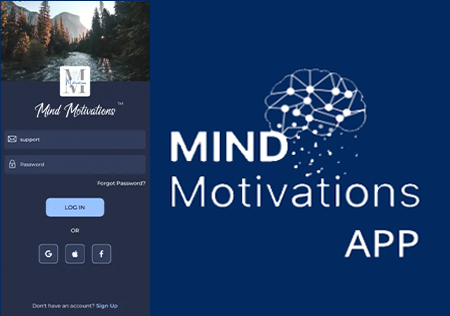Easing Stress and Anxiety

In times of difficulty, it’s common to feel entangled in problems, seeing challenges more vividly than solutions. Being in the midst of a problem often amplifies stress, anxiety, and confusion, which only clouds the ability to think clearly. By shifting to the role of an observer, however, you can step outside of the immediate emotional turmoil, gaining clarity, calm, and a greater capacity for problem-solving.
The Cycle of Being “In” the Problem
When you’re deeply immersed in a problem, you’re likely to experience heightened stress and an overwhelming sense of pressure. This is a natural human response. Our brains are wired to treat perceived threats, even psychological ones, as dangers. As a result, the mind focuses intently on the problem, triggering worry, and may even spiral into worst-case scenarios. This heightened stress response, often called the "fight-or-flight" reaction, is fueled by our natural survival instincts. Unfortunately, while this reaction may have protected our ancestors from physical threats, it doesn’t serve us well when dealing with modern, complex issues. Instead, it tends to make problems seem bigger, while pushing solutions further out of reach.
The Observer Mindset: A Path to Calm and Clarity
Taking on the perspective of an observer allows you to detach emotionally from the issue at hand. This doesn't mean ignoring or avoiding the problem but rather approaching it from a place of calm and objectivity. By stepping back, you create space between yourself and the problem, allowing your mind to assess it from a neutral standpoint. This shift not only reduces stress and anxiety but also unlocks a clearer, more creative perspective. You’re no longer viewing the problem through a lens of fear or frustration; instead, you can calmly assess possible solutions and choose the best course of action with a grounded mindset.
The Psychology of Past, Present, and Future: How Our Minds Get Stuck
Our brains have a tendency to refer back to past experiences as we navigate the present. When faced with a challenge, the mind often pulls from a “reference point” — something similar we encountered in the past. If past experiences involved frustration, fear, or failure, the brain may project those emotions onto the current situation, making it seem even more difficult. This backward-looking focus can also lead the mind to project negative scenarios into the future, shaping our expectations in a way that might make the problem seem insurmountable.
These mental projections affect present behavior, often in unhelpful ways. If we’re caught in a cycle of past and future worry, we might feel paralyzed, procrastinate, or react emotionally rather than logically. However, by adopting the observer role, we can view our past objectively, analyzing what worked and what didn’t, without the emotional charge. This creates a fresh approach to solving the problem, breaking the cycle of automatic, fear-based responses.
The Benefits of Becoming an Observer
- Reduced Anxiety and Stress: Detaching from the problem helps prevent the mind from overreacting and escalating small issues into overwhelming stressors.
- Greater Clarity and Focus: Viewing a situation from a distance allows for a clearer perspective, aiding in more rational and productive decision-making.
- Increased Motivation: By understanding the past objectively, you can set clearer, goal-oriented outcomes for the future. This gives your present actions direction and purpose.
- Improved Problem-Solving: In a calm state, the brain can access creative thinking, allowing for out-of-the-box solutions that might not be apparent in a stressed state.
- Enhanced Resilience: Practicing the observer mindset can make you more resilient in future challenges, as you’ve learned to detach and navigate problems calmly.
Hypnotherapy: A Tool to Foster the Observer Mindset
Hypnotherapy can be a powerful method for cultivating this observer mindset. By guiding you into a relaxed, focused state, hypnotherapy allows you to access and reframe subconscious beliefs and patterns. This can be especially helpful for revisiting past experiences that might unconsciously shape your current reactions. Under hypnosis, you can view these memories objectively, releasing old emotional responses and replacing them with constructive, solution-oriented thinking.
In addition, hypnotherapy can help establish positive visualization techniques. Instead of allowing the mind to project worst-case scenarios into the future, it can be guided to create goal-based, optimistic outcomes. Over time, this helps shift your focus from fear-based reactions to proactive and motivated behavior.
How to Cultivate the Observer Mindset Daily
- Pause and Breathe: When faced with a challenge, take a few deep breaths and imagine yourself observing the situation from a distance. This simple act of detachment can calm the mind and change your initial response.
- Identify the Patterns: Notice if your mind is pulling from past experiences or projecting fears into the future. Once aware, you can choose to release these associations and focus on the present facts.
- Set a Clear, Positive Goal: By establishing a future goal, you shift your mind from a fear-based reaction to a purpose-driven approach. Knowing what you want to achieve clarifies your actions and intentions in the present.
- Practice Visualization: Hypnotherapy or self-hypnosis can help you practice positive visualization, shifting your mental focus from fear-based scenarios to empowering, goal-oriented images.
Frequently Asked Questions (FAQs)
What does it mean to be “in” the problem?
Being "in" the problem refers to being emotionally entangled in the challenges, which heightens stress, anxiety, and confusion. This state amplifies the problem and clouds the ability to think clearly or find solutions.
Why does the brain focus on problems more than solutions?
The brain’s survival instincts trigger a "fight-or-flight" response to perceived threats, even psychological ones. This leads to intense focus on the problem, often spiraling into worst-case scenarios, which hinders solution-focused thinking.
What is the observer mindset?
The observer mindset involves stepping back from the emotional intensity of a situation to view it with calm and objectivity. This perspective allows for clearer thinking, better decision-making, and a more creative approach to problem-solving.
How does the observer mindset reduce stress and anxiety?
By detaching from emotional reactions and viewing the problem from a neutral perspective, the observer mindset calms the mind. This reduces the stress response, preventing small issues from escalating into overwhelming stressors.
What role do past experiences play in current challenges?
The brain often pulls from past experiences when navigating present challenges. Negative emotions from past frustrations or failures can shape how current problems are perceived, making them seem more difficult than they are.
How does hypnotherapy help with the observer mindset?
Hypnotherapy guides individuals into a relaxed state where subconscious beliefs and patterns can be reframed. It helps release emotional responses tied to past experiences and fosters constructive, solution-oriented thinking.
Can hypnotherapy improve visualization techniques?
Yes, hypnotherapy helps individuals practice positive visualization by replacing fear-based mental projections with optimistic, goal-oriented outcomes. Over time, this shift enhances motivation and proactive behavior.
What are the benefits of adopting the observer mindset?
- Reduced Anxiety and Stress: Helps the mind remain calm and prevents overreactions.
- Greater Clarity and Focus: Encourages rational decision-making.
- Increased Motivation: Provides purpose and direction for future goals.
- Improved Problem-Solving: Unlocks creative solutions in a calm state.
- Enhanced Resilience: Builds the ability to navigate future challenges calmly.
How can I practice the observer mindset daily?
- Pause and Breathe: Take deep breaths and imagine viewing the problem from a distance.
- Identify Patterns: Recognize when the mind pulls from past experiences or projects fears into the future.
- Set Clear Goals: Shift focus from fear-based reactions to purpose-driven intentions.
- Practice Visualization: Use self-hypnosis or mindfulness to focus on positive, goal-oriented outcomes.
What’s the long-term impact of embracing the observer mindset?
Practicing the observer mindset fosters calm, clarity, and resilience. Over time, it helps you approach challenges with confidence, make clearer decisions, and achieve meaningful, goal-oriented outcomes.
Conclusion
In any challenging situation, the shift from problem-focused thinking to the observer mindset can transform your experience. By practicing detachment, you can reduce stress, make clearer decisions, and establish positive, goal-oriented future outcomes. Whether through daily mindfulness practices or hypnotherapy, embracing the observer perspective can empower you to approach life’s challenges with a calm, focused, and resilient mind, setting you up for long-term success and well-being.
"By shifting to the role of an observer, you can step outside of the immediate emotional turmoil, gaining clarity, calm, and a greater capacity for problem-solving."

















Post new comment